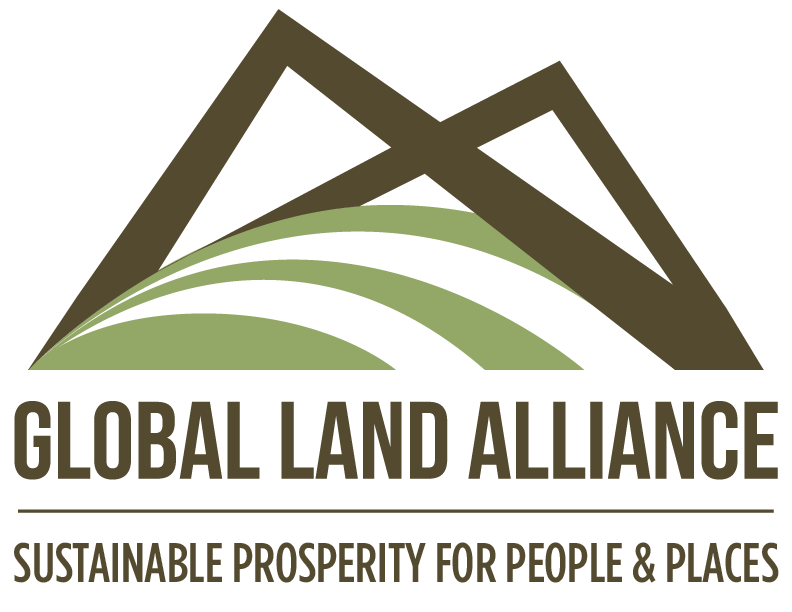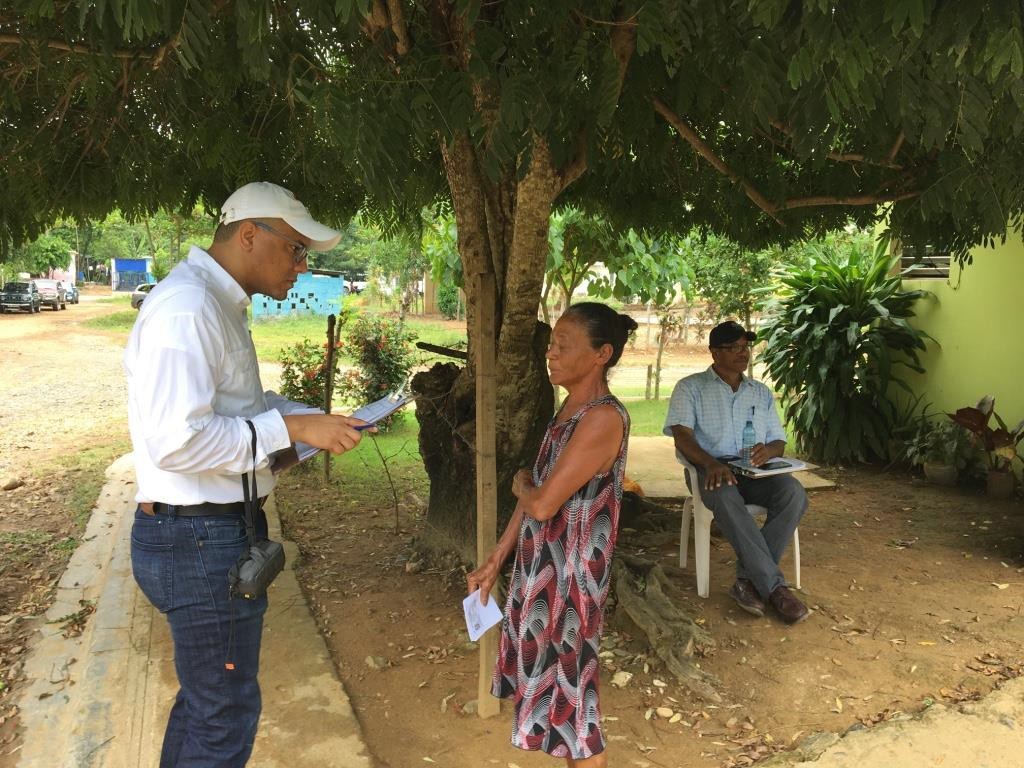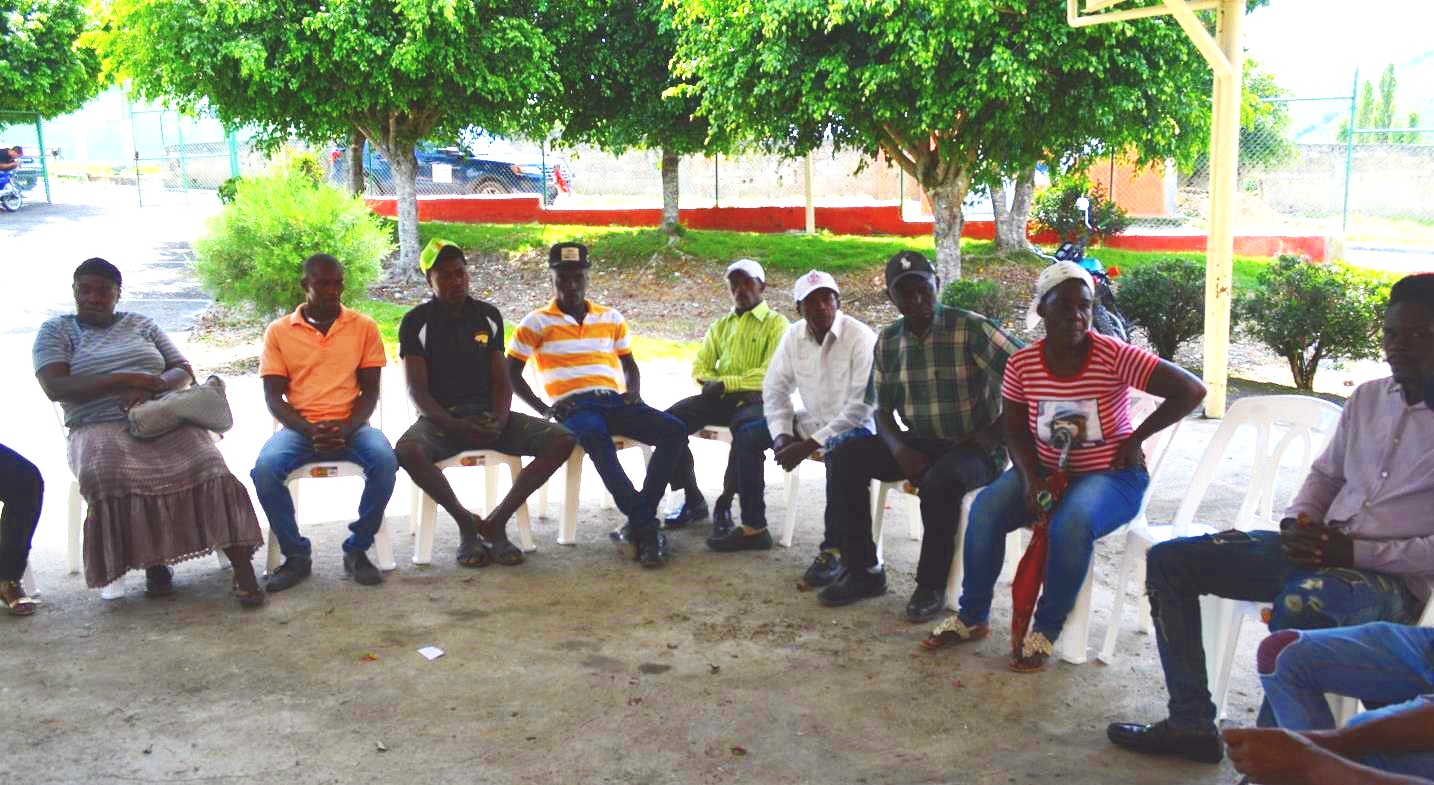Do No Harm In Systematic Land Formalization: A Model For Social Risk Identification and Prevention In Dominican Republic Fragile Watersheds
By Victor Endo, Kevin Barthel and Jesús de los Santos
Image: Compilation of documents in the field, during the Social Work campaign in El Dean, Municipality of Monte Plata
Slash and burn agriculture is commonly practiced by poor farmers living in fragile ecosystems in many places throughout the world. This practice is particularly relevant in Dominican Republic, where slash and burn agriculture is the livelihood for many poor farmers living in highly environmentally sensitive watersheds. Moreover, population growth, limited land availability and climate change is combining to reduce fallow periods which result in vulnerability to land degradation, especially in hillside areas.
Image: Land survey in Monte Plata
In this context, the Government of Dominican Republic with the support of the Interamerican Development Bank (IDB) is implementing the Agroforestry Development Program (PDA) to promote the adoption of agroforestry technologies and practices to reduce the negative effects of hillside agriculture, improve agriculture productivity and revert soil degradation while contributing to adaptation and mitigation to climate change. Such an intervention requires long term investments on land specifically in project areas where informal land tenure presents a significant challenge[1].
Increased tenure security is necessary to create incentives for poor farmers who are asked to leave their traditional short cycle crops (typically beans, peas and root vegetables) and substitute them with more sustainable and environmentally appropriate activities such as coffee, avocado, mangoes and reforestation of native trees. Land tenure security is also a prerequisite to promote forest community management and to prevent undesirable land grabbing when agroforestry investments boost land prices. To respond to this challenge, the PDA includes a land tenure formalization component geared toward supporting the government’s land titling agency (Permanent Commission for the Public Land Formalization – CPTTE in Spanish) efforts to systematically formalize landholdings in the project areas.
However, systematic land formalization activities may produce adverse impacts to families and vulnerable groups who either do not comply with the requirements established by the Dominican legal and regulatory framework, or who are unable to participate in formalization activities due to their limited resources and education. This is particularly relevant for vulnerable groups identified in the project areas, for example, farmers who lack identity documents required for land formalization, and the many undocumented Haitian immigrants living and working in the project areas. To reduce the risk of displacement of farmers whose land tenure could not be formalized, a study must be undertaken to to identify areas with high incidence of social risk of impoverishment or physical displacement was included as a prerequisite of IDB funding for land tenure formalizations. This study is intended to: (i) identify and analyze the social risks; (ii) identify geographic areas within the selected watersheds that have a high incident of these risks and therefore should be excluded from the formalization process; and (iii) to incorporate specific guidelines and risk mitigation measures into the land tenure formalization operational processes of the CPTTE.
Image: Compilation of documents in El Dean Community Center, during Social Work campaign, Municipality of Monte Silver
Global Land Alliance, along with Dominican NGO partner REDDOM, have developed a methodological model for the analysis of the social risks posed by systematic formalization in sensitive watersheds in Dominican Republic. The model was applied in the Hondo Valle watershed in June to August 2019. The recommendations formulated to reduce the risks identified in the pilot application in Hondo Valle will be applied by the GLA and REDDOM team to analyze 7 further watershed communities.
Following the GLA and REDDOM methodology, the team will analyze social risk factors in 7 watershed communities. These factors include: i) the socio-demographic characterization of the potentially affected population, including vulnerable groups such as undocumented citizens, immigrants, and women; ii) the identification of geographic areas where high risk of displacement may exist; iii) the identification of the main factors and risks which may hinder access to the benefits of formalization; iv) an analysis of the legal and regulatory framework related to land formalization; and, v) the identification of operational protocols and recommendations for CPTTE to promote inclusion of vulnerable populations in the formalization processes.
This study is in line with the Voluntary Guidelines on the Responsible Governance of Land Fisheries and Forests, which asserts that allocation of tenure rights to land, fisheries and forests, should include safeguards “to avoid infringing on or extinguishing tenure rights of others, including legitimate tenure rights that are not currently protected by law. In particular, safeguards should protect women and the vulnerable who hold subsidiary tenure rights, such as gathering rights.”
[1] The Agroforestry Development Program scope includes Reforestation and Sustainable Development Projects in six watershed areas in the Enriquillo, El Valle and Valdesia regions: i) Hondo Valle and Juan Santiago, Elias Piña Province, ii) Distrito Municipal de Sabaneta, San Juan Province, iii) Los Blancos, Barahona Province, iv) Las Cañitas, Cuenca Alta de Presa Sabana Yegua, Azua Province; v) Sierra de Neyba, Independencia Province, vi) Sierra de Neyba, Bahoruco Province.





